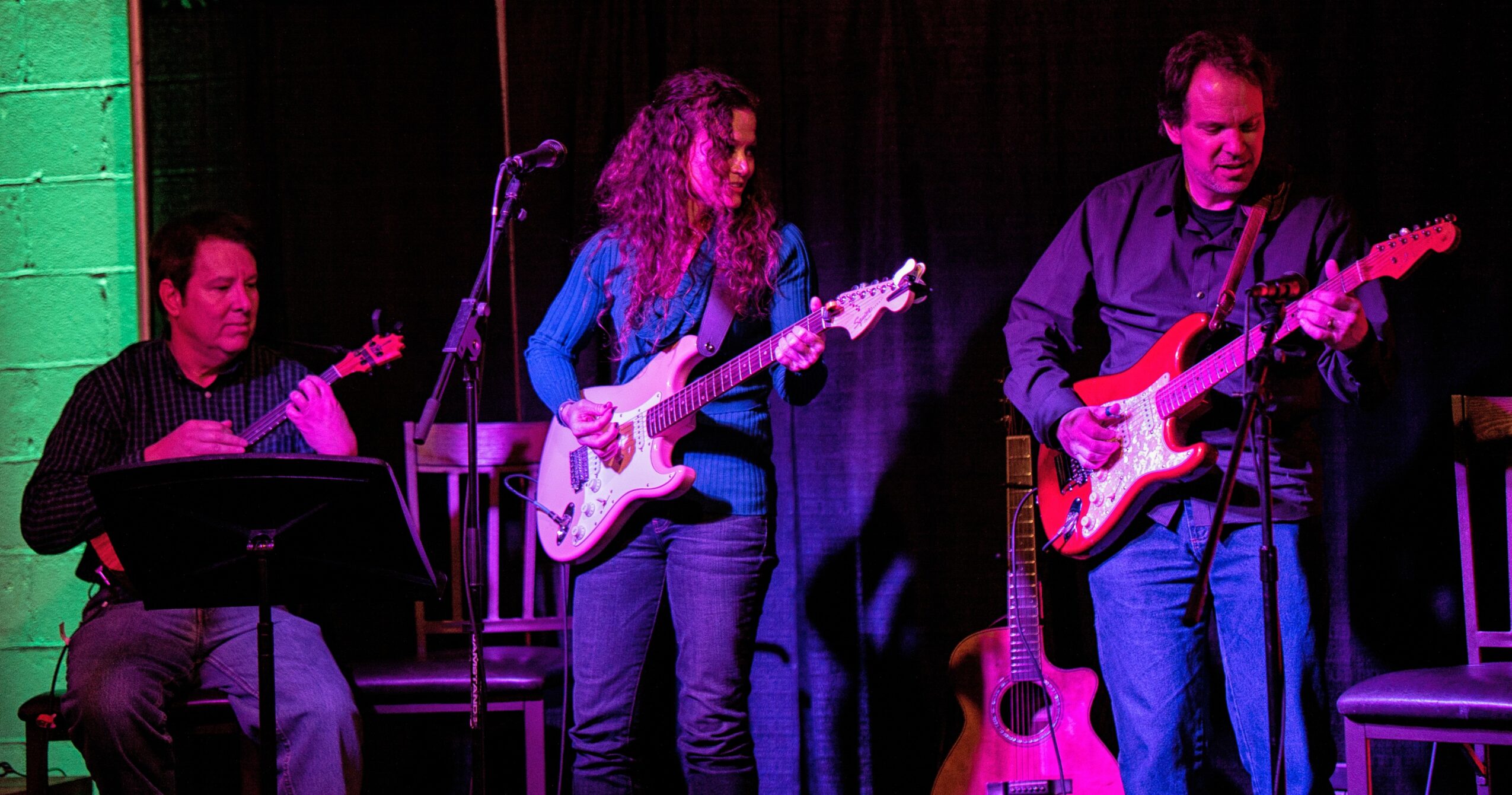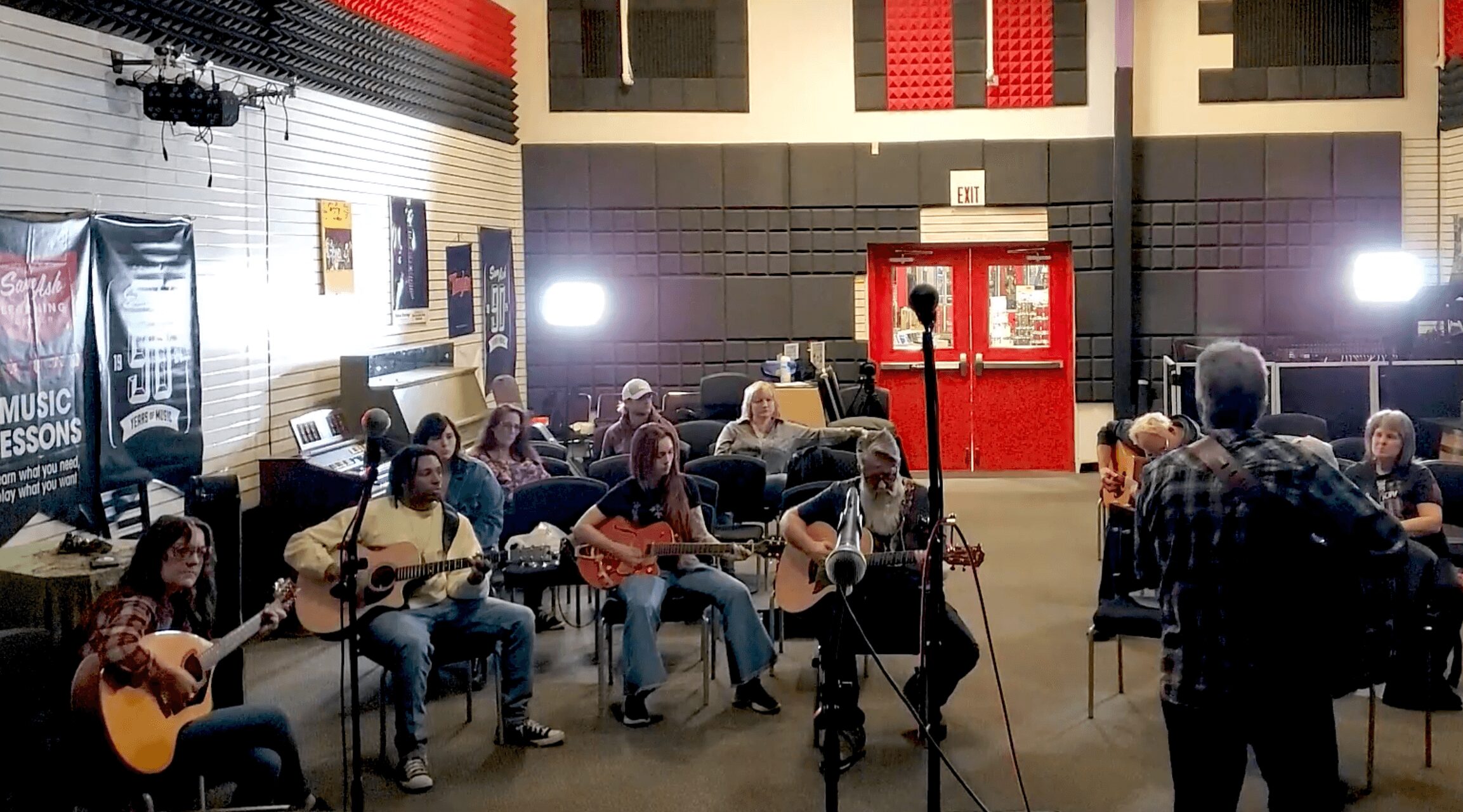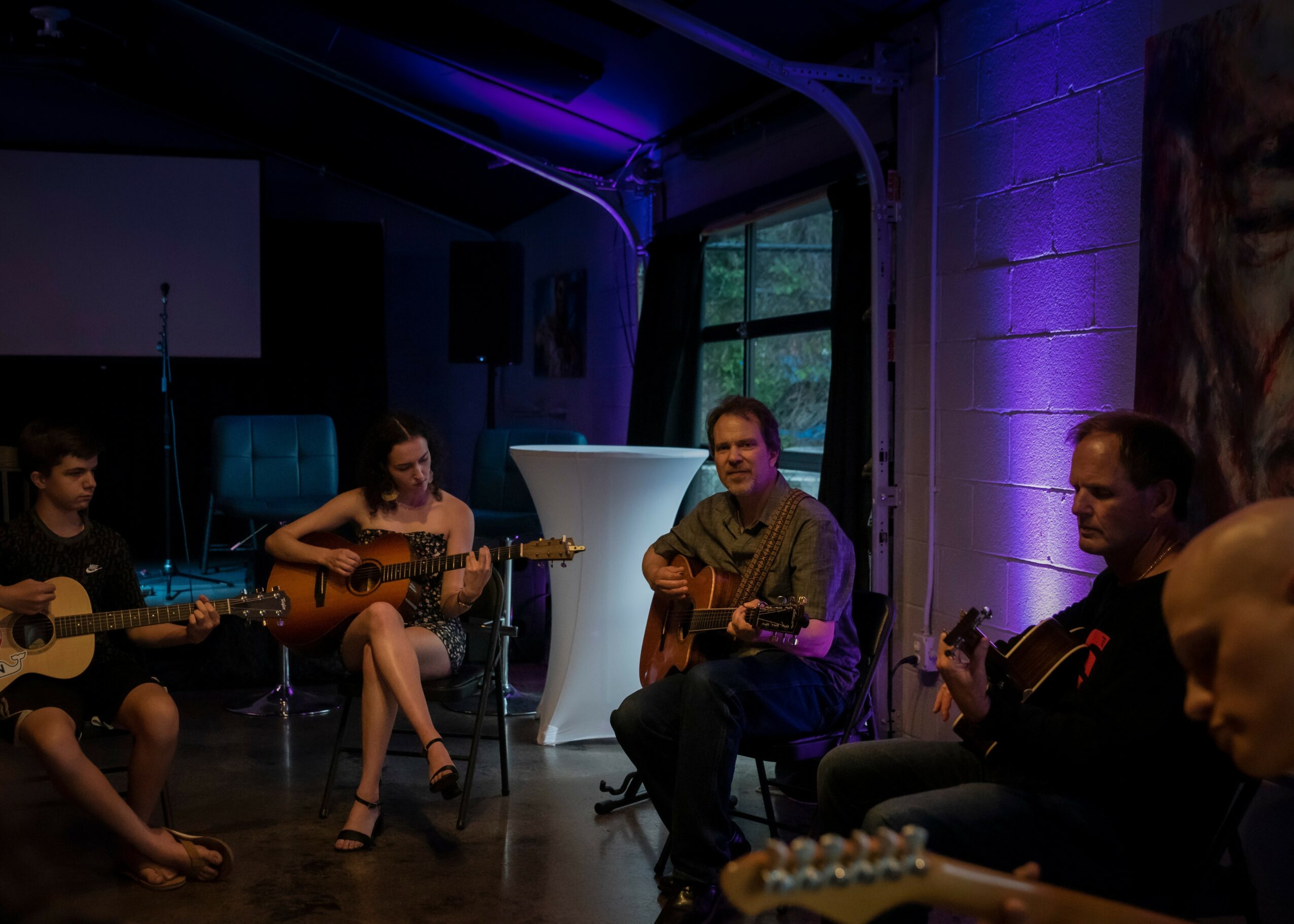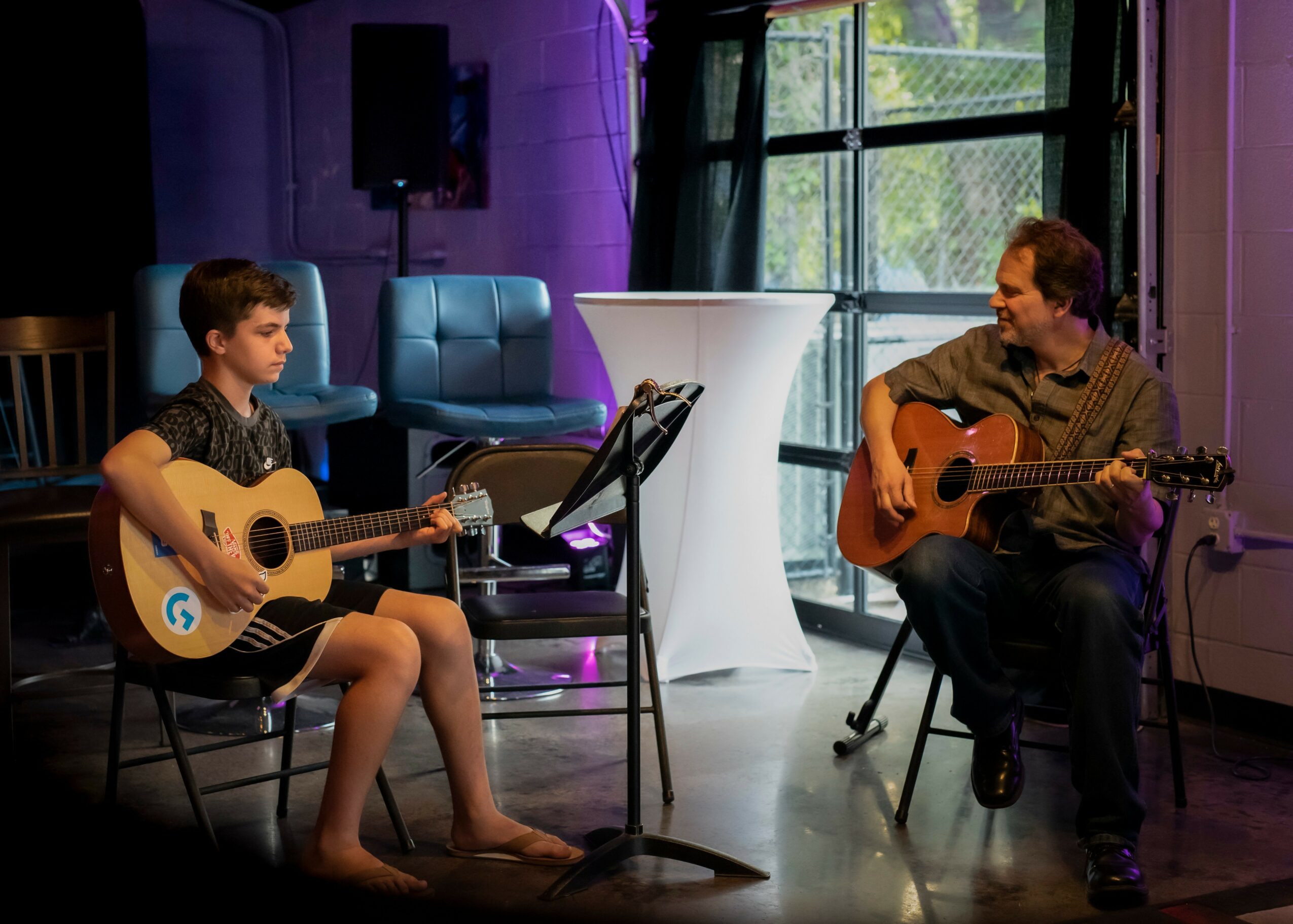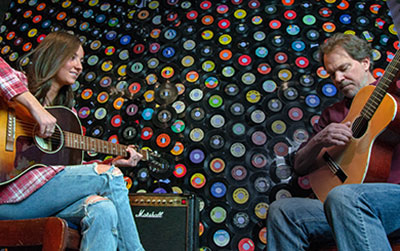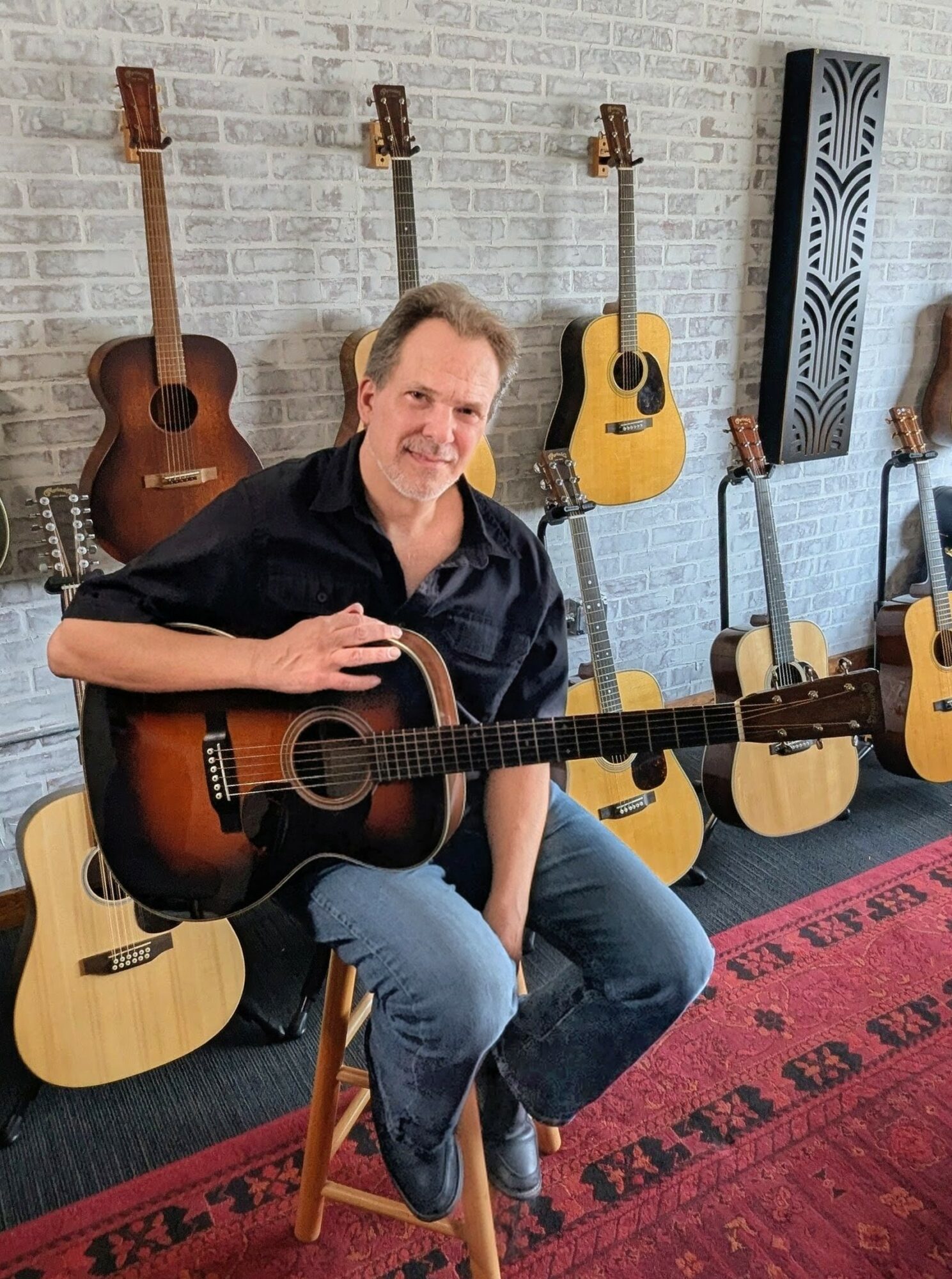

Today we’d like to introduce you to Dave Isaacs.
Hi Dave, please kick things off for us with an introduction to yourself and your story.
My career path has not been a straight line, but a series of spirals with branches and detours. I’ve written in the past about the importance of focus, and it’s true that my private teaching business has been at the center of my professional life for 20 years now. But as musicians, we are also always looking for the next exciting possibility, For me, that has always been part of what keeps me going: that there’s always something new around the corner.
It took me many years to realize that my formal musical training did wonderful things for my skills, and absolutely nothing for my career as an artist. After completing two degrees in classical guitar, I walked away from it in 1994 after developing serious repetitive strain problems. After asking myself some hard questions, I went back to my electric guitar and joined a band. Two years later I started my own.
From a NYC-based classical guitarist to a Long Island “suburban cowboy” fronting a country line dance band is already a hard left turn. Forging your way through a highly competitive scene while facing the derision of unskilled musical hipsters is something I had to learn, but Jackalope Junction became regionally successful and respected in the music community. A move to Nashville seemed like a natural next step, and I arrived in Music City in 2005.
Since then I’ve been through five bands, eight albums in multiple genres, a seven-year detour into academia, and a year and a half as an arts consultant. The one constant through all of this is my private teaching, and my continuing commitment to being the best musician and teacher I can be. Nashville has been good to me that way.
I’m sure it wasn’t obstacle-free, but would you say the journey has been fairly smooth so far?
The biggest challenge wasn’t getting established. I had gigs before I landed in Nashville. I found a teaching position my first week. Within a year I had a full roster of students and all the backup gigs I could handle. Enter left turn number one, a duo project that was so compelling I left my teaching gig and stopped taking sideman work. As so many projects do, it crashed and burned with gigs on the books and three thousand CDs in my garage.
A year later the crash of 2008 created a whole new set of challenges and struggle. In classic “deus ex machina” fashion, a teaching position dropped out of the sky and I spent the next several years learning the ins and outs of academia. I love classroom teaching and thoroughly enjoyed that part of the experience, working first part-time for Art Institute and then taking a full time position in the music department at Tennessee State University. The students at TSU were incredible and it’s been fantastic to watch so many of them soar in their own careers. But it became clear after several years than an academic path was not what I wanted, and I walked away from a salary and benefits to recommit to my own business and band.
The band, of course, went the way of most, although at least the guys and I are still friends. Release a solo album. Join another band, release an album, get a record deal, and learn on the road that interpersonally this was not going to work. Quit the band, rinse and repeat.
We all have our setback stories of the pandemic. Mine was that I had planned a book tour to promote The Perpetual Beginner, the instructional memoir I released in 2019, which was getting attention including a rave review in Publishers’ Weekly. In February 2020 I was laying the groundwork to spend the next year visiting bookstores. We all know what happened next!
I have had to ask myself more than once whether I’m part of the problem, having had so many situations not lead where I had hoped. But I’ve learned a lot about people, about myself, and about business, and I’m still standing. I’ll take the win.
As you know, we’re big fans of Nashville Guitar Guru. For our readers who might not be as familiar what can you tell them about the brand?
Teaching guitar has been a constant through my professional life, starting with the neighborhood music store on Long Island and leading up to a Music Row studio, a reputation, and even an “unofficial” title. “Nashville Guitar Guru” is the name of my business, not the way I introduce myself, but I’ll own it. It suits my style and demeanor as a teacher. And of course, a “guru” is a teacher, and every good teacher knows how much they still don’t know.
I’ve developed two specialties over the nearly 40 years I’ve been doing this. One is coaching creatives: songwriters, performers, and pickers that want to become more expressive. My goal in this has always been to help my clients identify the sound and feel of the music they want to make, and find how to make the guitar serve that vision. Sometimes that means learning to be a skilled guitarist in multiple genres, as most pro players I know are. But more often, that means finding a vocabulary and way of approaching the guitar that’s theirs. I mentioned earlier how music school taught me to be a skilled player, but not an artist with a voice. That part came with experience, time, and lots of hard lessons about how easy it is to wear musical “masks” instead of finding a true voice.
My other specialty is in helping adults with more history and desire than skill. These are the “perpetual beginners” that inspired the title of my book. I’ve come to believe that adults need a different approach to learning an instrument, one more built on using adult problem-solving skills and understanding of context than on the simple repetition we were all taught was the only way. That might be true for kids. But adults have different brains and different lives, and brute force and commitment are not enough. Life saddles us with baggage, and those lessons you had at twelve might have created some baggage of its own. So my approach is to evaluate where each student is, and find a way to get them to connect with the physical experience of playing: the thing that made 12-year old me want to play in the first place.
How do you think about luck?
Luck is always a factor. Talent, strategy and perseverance are bigger factors. But there’s an old saying that no battle plan survives first contact with the enemy, and in a music career your luck is the factor you can’t control or predetermine.
I’d say I’ve had plenty of bad luck along with plenty of poor decisions. But every success started with a fortuitous meeting or opportunity. So it’s a double-edged sword and something that needs to be accounted for, accepted, and expected, one way or the other.
Contact Info:
- Website: https://www.nashvilleguitarguru.com
- Instagram: https://instagram.com/nashvilleguitarguru
- Facebook: https://facebook.com/daveisaacs.121
- Youtube: https://youtube.com/@nashvilleguitarguru
